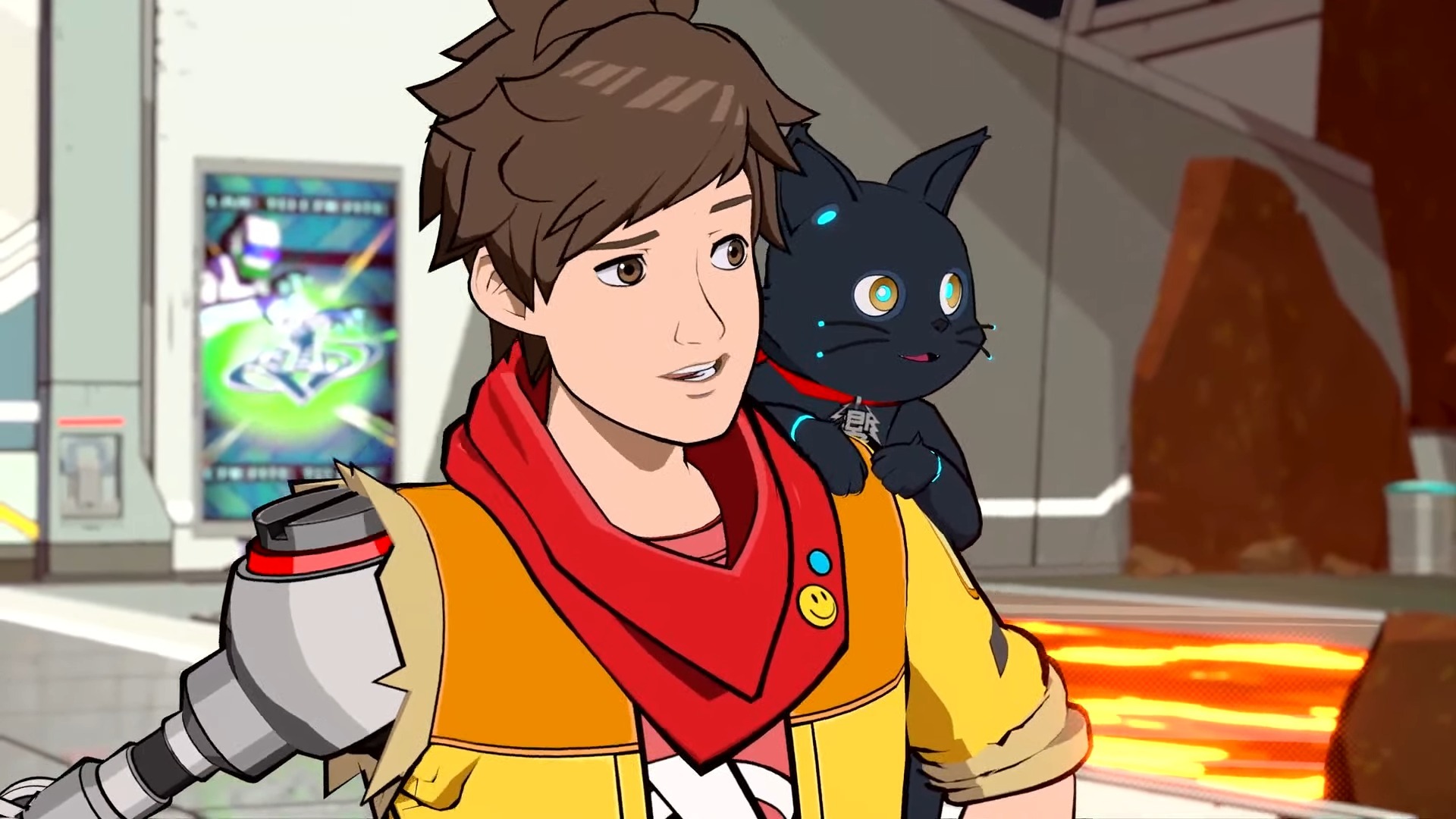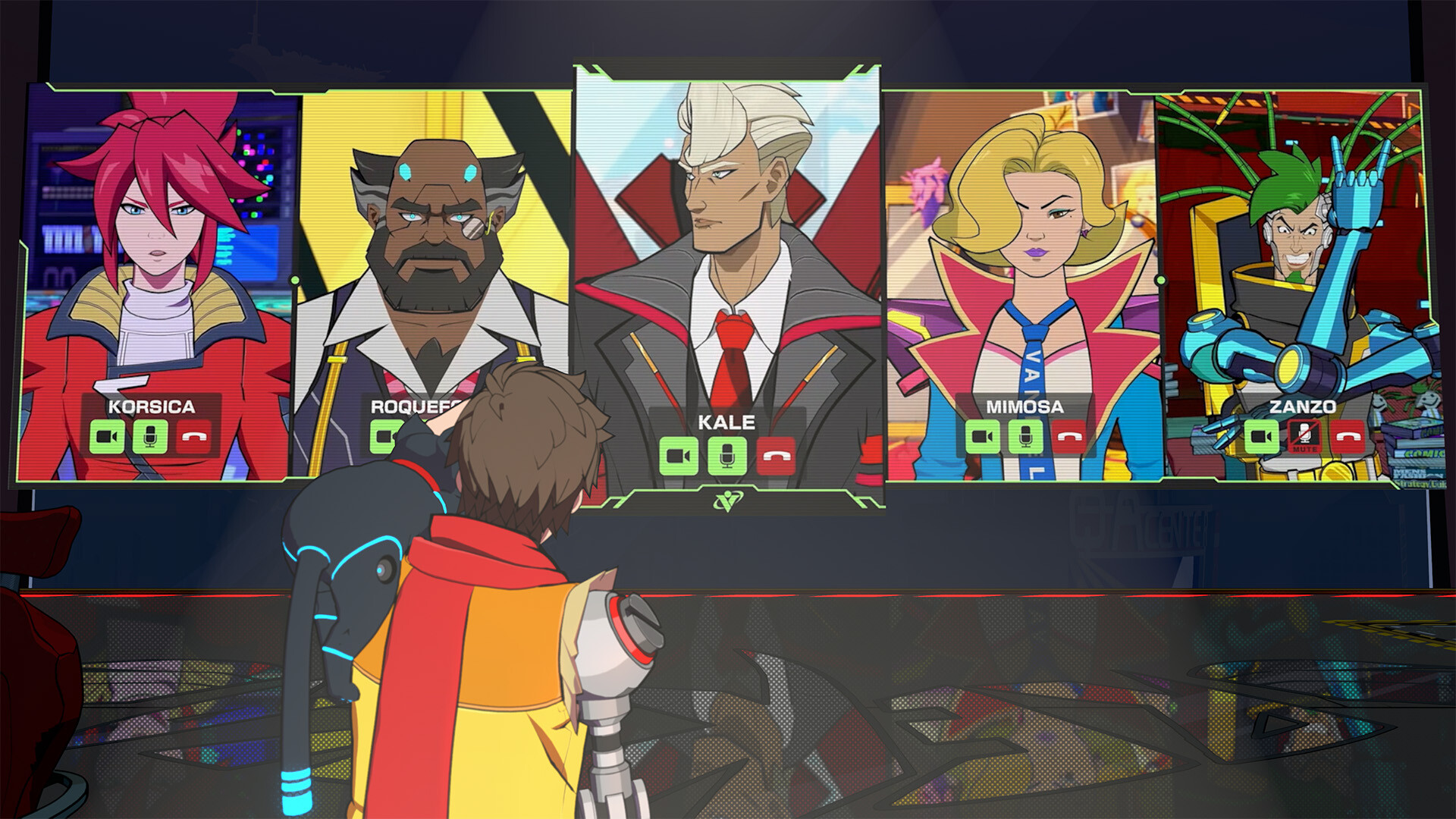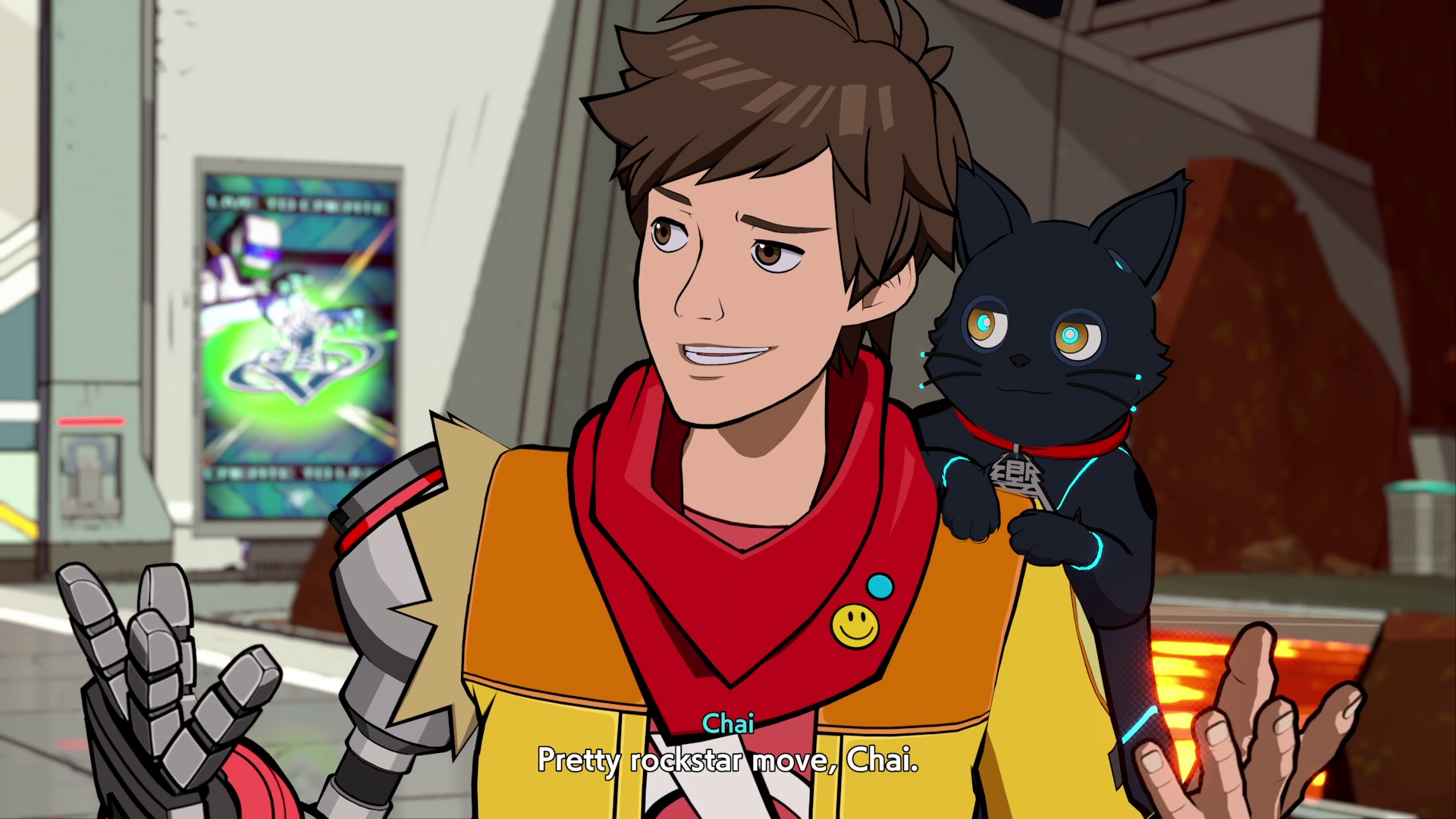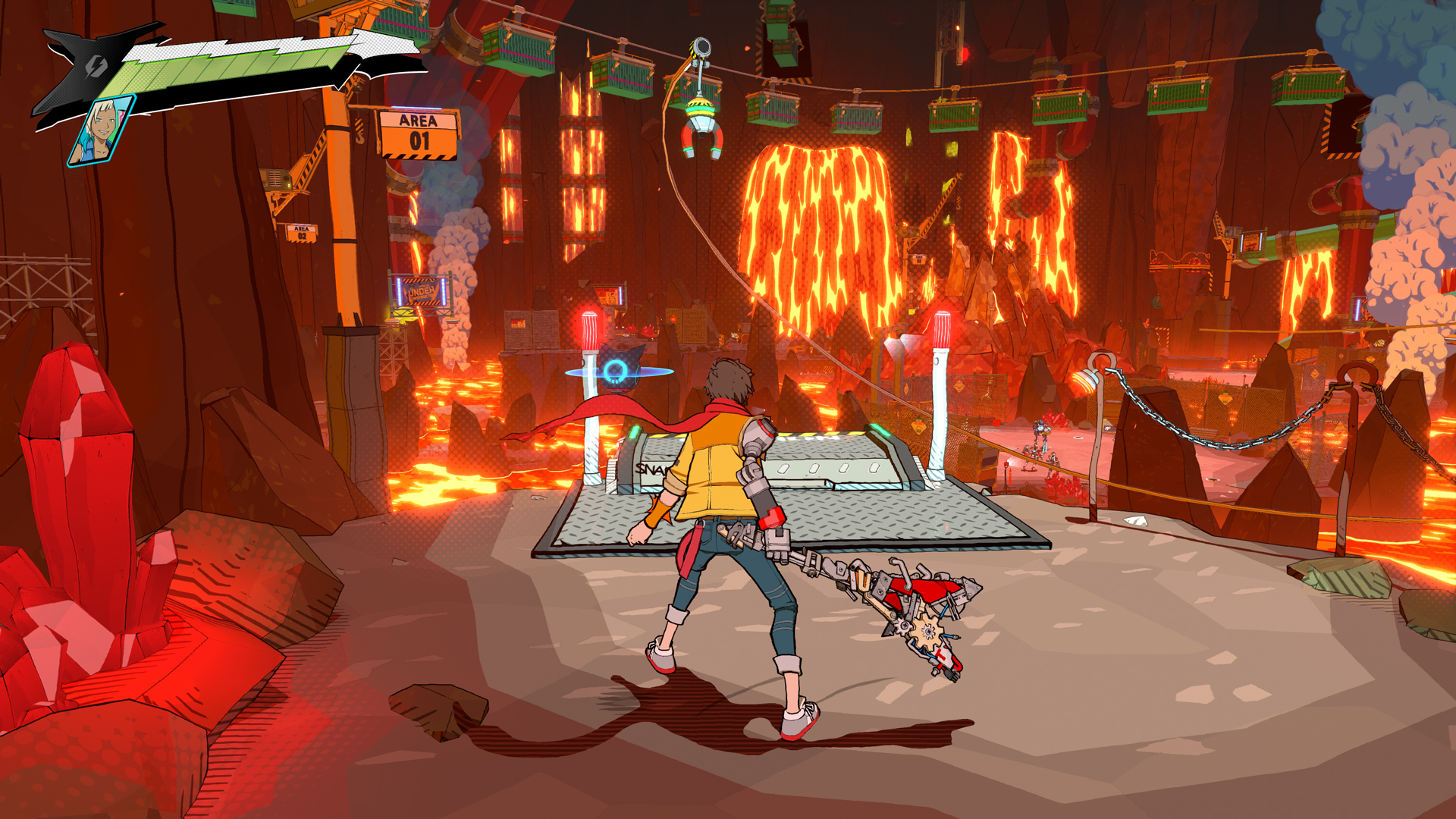
Hi-Fi Rush is one of my favorite games of the last few years, a musical tour-de-force that filters 2000s-era gaming through the benefits of modernity. More importantly, in the wake of the genuine tragedy that is the sudden, startling closure of developer Tango Gameworks last week, I found myself thinking about Chai's adventures, and back to something about the game that stuck out to me: Hi-Fi Rush's overt joy seemed tempered by a palpable frustration at how difficult it is to do creative, worthwhile work within an unsympathetic corporate structure.
And speaking as somebody who has also been part of good teams shut down by the massive businesses that own them, it's a message that broadcasts loud and clear.
Raging against the machine

It's not hard to see this theme running through the whole game. Hi-Fi Rush isn't quite at the point of being explicitly "anti-corporate," but there are more than a few notes playing that tune. It certainly doesn't take much scrutiny to realize that all the major antagonists are just living embodiments of common complaints that have dogged the gaming industry for years.

Hi-Fi Rush review: "An undeniably wild ride that shouldn't be ignored"
To pick just a few examples, Zanzo is an egotistical hauteur who submits his workers to hideous crunch to manifest his every ill-considered whim, burning through his resources and ultimately leading to his projects collapsing on themselves. Roquefort is a money-hoarding accountant who refuses to bankroll any good ideas, despite the company sitting on enormous vaults of unspent gold with which it could do great things. Mimosa is a glamorized PR exec and community manager who seems more interested in just promoting herself than Vandelay's projects. Meanwhile, final boss and CEO Kale is a nepotistic hire completely insulated from all professional risk and disproportionately rewarded for his minimal contributions.
And so it goes, on and on, framed by the workforce of demoralized and abused robotic staff that link these encounters. To be clear, I don't think that these are intended as jabs at Microsoft particularly, more evoking broader industry issues we've seen rearing their heads across the years. Whether it's nightmarish crunch and CEOs continuing to avoid negative consequences, or just businesses prioritizing even greater profits at the cost of their employees' security, Hi-Fi Rush's specificity about its antagonists' crimes makes it clear that it has a real axe to grind - even if that axe turns out to be a six-string cherry Epiphone V made of magnetically assembled shrapnel. I also can't help but notice that the game's ostensible solution is to break into head offices and start clubbing upper management with blunt objects.
They're playing that song again…

Tango's grievances are only hammered home further when we discover that most of the cast have backstories in which they really tried to work within the corporate system to do something positive, only for the system to prove too cruel and inflexible to allow it. Hi-Fi Rush is downright joyful at moments, in a way that always feels adorably, humanly authentic, but speaking personally, I could really feel that equally human, equally valid anger boiling under the surface. That combination of qualities helps give its punk edge - and makes the loss of Tango Gameworks sting all the more.
Ultimately, it can't help but feel like the very systems that Hi-Fi Rush was trying to raise awareness about just turned on it. It's hardly unique in that regard - the gaming industry has been plagued with layoffs for months - but ill-feeling around this particular loss has only been stoked further by the notably unclear discourse about exactly why Tango Gameworks was closed in the first place. Speaking as a former writer for USgamer, a once-great publication that no longer exists for similarly vague reasons, I can't say Hi-Fi Rush's more bitter sentiments don't resonate with me.
I think it's both a testament to Tango and a grim indictment of the gaming industry that Chai's story will only become more poignant as time goes on, but I really wish that wasn't the case. If nothing else, I really do hope that everybody involved finds new chances and new outlets for their undeniable talent, and that we as a community pay a little more attention to their lyrics. After all, the best songs never really lose their relevance.







